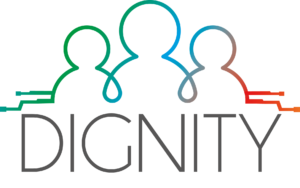
Nemi is a platform focused on improving the efficiency of bus services in contexts of low or irregular demand. This is the case, for example, for low population-density areas, remote areas, off-peak hours and weekends, or in areas with internal mobility of students and workers. The platform consists of a system back-end (which hosts the routing algorithm), a smartphone app, a driver app, and a web back-office. The combination of these components allows citizens to book seats on vehicles which are operating different demand-responsive lines by indicating origin, destination and time of their desired trip. The routing algorithm always provides the optimal route when it comes to distance and duration based on the existing requests from users for a specific area and time. In practice, most of their users are older people living in rural areas or away from the city centre.
Category: Digital vehicle sharing services/platforms
Developer: ne-mi / Pildo Consulting (segons App Store)
Main function: Digital vehicle sharing service/platform
What is the main sub-function of the service/product: Demand responsive public transport (DRT)
Target group(s): General public/other; Inhabitants of rural areas
Countries/cities of operation: Spain: Metropolitan areas of Barcelona and Girona
Technologies needed to use the service:
- Smartphone or tablet (with internet connection) for on-route navigation.
- Laptop, desktop, tablet or smartphone with internet connection for managing the back-office.
Is there a non-digital way to use this service or product? Yes, booking through a phone call.
Why is this a good example?
| Reason(s) | Providing public transport provision in underserved areas |
| More details | People living in low-density areas (e.g. rural environments, spread-out towns, peripheral neighbourhoods, residential areas in the mountains) often have no access to public transport or have a public bus service which does not satisfy their needs. This often leaves them with no affordable alternative to private means of transport. Nemi provides a viable and convenient mobility solution for such areas by optimizing the resources involved in the operation of bus services, such as vehicles, energy, money and time. |
| Tags | Specific user groups-Inhabitants of rural areas, Functionality-On-demand services |
| Reason(s) | Option to book transport via a phone call |
| More details | The services operated through the Nemi platform offer the possibility of booking a trip by calling the public transport operator and talking to an agent. This is useful for people who can’t or don’t know how to use a smartphone at its full potential, don’t have a smartphone or simply prefer to arrange matters through a phone call. Currently, the phone call service represents 50-70% of the total number of bookings, revealing the importance of providing this analogue channel, particularly for older people. |
| Tags | Caters for low technology users, Specific user groups-Older people |
| Reason(s) | Facility for booking adapted seats for wheelchair users |
| More details | The platform offers a facility to book seats for wheelchair users. This can be done through the app or through the back-office if an agent receives a phone call requesting this. The availability of seats on the platform automatically changes after processing a booking for an adapted seat. This is based on how the adapted seat modifies the available space in the vehicle, e.g. it may require folding regular seats to accommodate a wheelchair. |
| Tags | Specific user groups-People with disabilities, Caters for low technology users |
| Reason(s) | Use of virtual stops to get closer to users |
| More details | The service uses virtual stops to get closer to users and to services and points of interest. This is particularly relevant in areas with an aging population, where many users (or potential users) of public transport services are old people who are experiencing loss of mobility. The flexibility provided by this functionality is a step forward in the fight against social exclusion and dependence among the elderly. |
| Tags | Functionality-On-Demand services; Specific user groups-Older people, Specific user groups-People with disabilities |
| Reason(s) | Allows users to save favourite trips |
| More details | Users can save frequent trips in the favourites section, where they can name them (e.g., Hospital), to save steps in the next booking. This functionality allows them to just indicate day and time of the trip, instead of having to also indicate origin and destination. |
| Tags | Usability-Customisation |
If you would like to know more about why this product is part of this catalogue or what aspects of this example are specifically appropriate, click here to view the full DIGNITY Interactive Catalogue, which contains further information.

